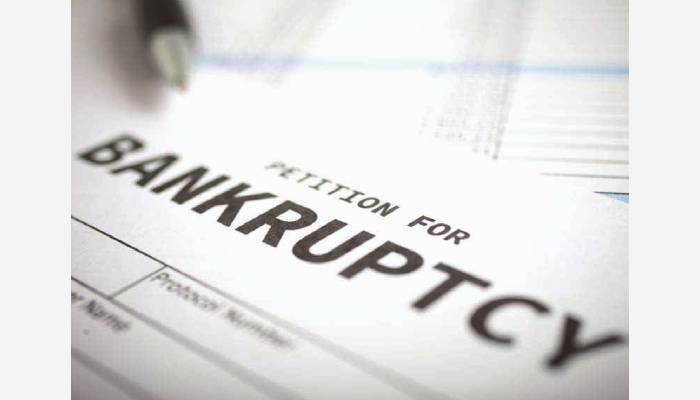
or

While answering a very interesting question on Rule 5(2) of the 2016 Transfer Rules on which different views were expressed by various High Courts, the Hon’ble Apex Court held that under the scheme of Rule 5(2) of the 2016 Transfer Rules, all proceedings under Section 20 of the Sick Industrial Companies Act (SICA), pending before the High Court are to continue with such High Court, until, in accordance with the amended Section 434 of the Companies Act, 2013, a party files an application before the High Court for transfer of such proceedings post 17thAugust, 2018. It was further clarified that on filing of such application, the High Court must necessarily transfer the proceedings to the concerned NCLT.
The case before the Apex Court, namely, Jaipur Metals & Electricals Employees Organisation v. Jaipur Metals & Electricals Ltd. & Ors. [SLP (C) No. 18598 of 2018], arose out of the order dated 1stJune 2018 wherein
the High Court stayed the NCLT’s order admitting an application under section 7 of the Insolvency Bankruptcy Code (IBC) prior to the admission of winding up proceedings that were pending before the High Court.
The proceedings against the company, namely, Jaipur Metals and Electricals Ltd. (‘JMEL’) were pending for an inordinately long period, since its account turned into a Non-Performing Asset (NPA) in the year 1999, pursuant to which, on a reference under the SICA, the Board for Industrial and Financial Reconstruction (BIFR) forwarded its opinion for winding up the company to the High Court, which eventually got registered only in 2009. Interestingly, as the company was given protection as a State Relief Undertaking, no suits were being filed against the company. The workers of JMEL, who had not received their salaries and dues for almost two decades, the workers filed various writ petitions before the High Court, which eventually directed the Official Liquidator to act provisionally with the evaluation team to ascertain the value of the movable assets of the company, for possible satisfaction of the workers’ dues.
The Hon’ble Apex Court held that the appeal before it is restricted to Rule 5 (2) of the Transfer Rules, which, before its amendment, put an embargo on the transfer of proceedings initiated under Section 20 of the SICA, to the NCLT. The Apex Court held that the cases which fall under Section 20 of the SICA are to be dealt separately under Rule 5(2) and cannot be treated as proceedings where an order for winding up is made for “just and equitable reasons” under Section 433(f) of the Companies Act, 1956. This differentiation also helped to clarify that such proceedings would not stand transferred in terms of Rule 5(1) of the Transfer Rules, which deals with winding up proceedings where an order of admission is made for the inability to pay debts, in terms of Section 433(e) of the Companies Act, 1956. The Hon’ble Apex Court helped in explaining the legislative intent in excluding Rule 5 (2), stating it was done to indicate that after repeal of the SICA, proceedings under Section 20 of the SICA were to be dealt by the High Courts.
After elucidating the law on the Transfer Rules and winding up proceedings initiated in terms of the SICA, the Hon’ble Apex Court, in specific reference to the proceedings against JMEL held that any application for transfer in terms of Section 434 of the Companies Act, 2013 would be inconsistent in terms of Section 238 of the Code and hence, the pending company petition as well as all writ petitions in respect of JMEL cannot continue before the High Court. Notably, the Apex Court deflected the argument that Section 434, having been amended by the Eleventh Schedule of the Code itself, cannot be inconsistent with the Code, by the simple and compelling reasoning that even though amended by the Eleventh Schedule of the Code, Section 434 only appears in the Companies Act, 2013 and hence, cannot be considered as a part of the Code.
Ashu Kansal is a Partner at Adhita Advisors, having more than fifteen years of experience. His main areas of expertise are banking and finance laws, securitization - related matters, recovery of debts, suits, and arbitration matters. Apart from drafting various pleadings, he also advises/ gives opinions and strategies to clients on various litigation matters in various forums including the Supreme Court, High Courts and various other Tribunals across the Country. He has also briefed top Senior Counsels across the country for multinational clients.

Lex Witness Bureau

Lex Witness Bureau

For over 10 years, since its inception in 2009 as a monthly, Lex Witness has become India’s most credible platform for the legal luminaries to opine, comment and share their views. more...
Connect Us:


The Grand Masters - A Corporate Counsel Legal Best Practices Summit Series
www.grandmasters.in | 8 Years & Counting
The Real Estate & Construction Legal Summit
www.rcls.in | 8 Years & Counting
The Information Technology Legal Summit
www.itlegalsummit.com | 8 Years & Counting
The Banking & Finance Legal Summit
www.bfls.in | 8 Years & Counting
The Media, Advertising and Entertainment Legal Summit
www.maels.in | 8 Years & Counting
The Pharma Legal & Compliance Summit
www.plcs.co.in | 8 Years & Counting
We at Lex Witness strategically assist firms in reaching out to the relevant audience sets through various knowledge sharing initiatives. Here are some more info decks for you to know us better.
Copyright © 2020 Lex Witness - India's 1st Magazine on Legal & Corporate Affairs Rights of Admission Reserved